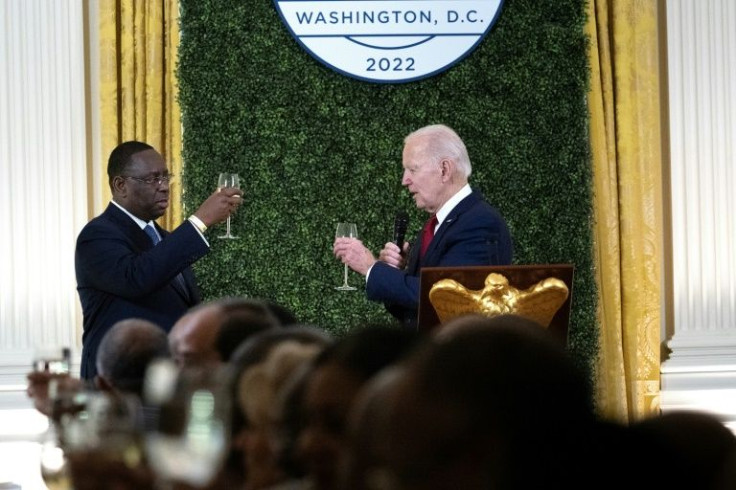Can The US Succeed As Africa Succeeds?

Despite a heavy schedule at the second U.S.-Africa summit, Joe Biden found enough time to watch the World Cup semifinal match between Morocco - the first nation from Africa to play the semifinals - and France with Morocco's prime minister, Aziz Akhannouch, in toe. France won the match.
Before hosting a dinner at the White House for African leaders and their spouses, where seven-time Grammy Award-winner Gladys Knight belted out her best number, Biden met leaders from Gabon, Liberia and other African nations which are going to polls in 2023 to give them tips on democratic principles and a rule-based world order.
Biden has pledged $55 billion for food security and climate change partnerships for Africa while backing the African Union, which is also attending the three-day summit along with 49 heads of state, a permanent member status at the Group of 20 major economies.
"When Africa succeeds, the United States succeeds. Quite frankly, the whole world succeeds as well," Biden said.
The U.S. is eyeing a market valued at $3.4 trillion and access to 1.3 billion people in Africa. But there are two stumbling blocks to U.S. efforts to regain the trust of Africa - China and the inherent unrest in the continent which is at times directed at the imperial acts of the U.S.
It remains to be seen how African leaders will play their cards while choosing between the U.S. and China. Already, Ghana's President Nana Akufo-Addo fired the first salvo at the summit where he urged African countries to stop begging the West to earn global respect.
Amidst the high-level conclave, civil unrest in the continent has come to the fore. The untoward incident occurred in Ethiopia, which serves as the headquarters of the African Union.
In the new round of flare-ups, more than 50 people were killed in the northern Tigray region in the country where Nobel Peace prize winner Abiy Ahmed had ordered a military offensive against local forces.
In the new round of escalation between Abiy's government and leaders of Tigray's dominant political party, Dr Tedros Adhanom Ghebreyesus, chief of the World Health Organization (WHO), lost his uncle.
The fighting is devastating the second most populous country in Africa, leaving thousands of people dead while more than 350,000 others live in poverty.
Speaking in Geneva, Dr Tedros said he was informed of the death of his 57-year-old uncle on Dec. 10.
Dr Tedros expressed hopes that a ceasefire between the Ethiopian government and the Tigray People's Liberation Front (TPLF) "will hold and this madness will stop."
Meanwhile, at the summit in Washington, Secretary of State Antony J. Blinken met with Abiy to take stock of the progress made on the implementation of the Nov. 2 Cessation of Hostilities Agreement.
Blinken commended the steps taken by Abiy to improve humanitarian access and restore essential services.
Violence in Africa has been an on-and-off issue. As it begins to calm, it starts elsewhere, challenging cash-starved African leaders who are eager to persuade the international community to fund their economies.
The continent is wrestling with deadly tensions between ethnic groups and their armed allies. So far, the total death toll in the violence in Africa is unknown as the intensifying government struggle against rebels has taken an ethnic route.
So, the chances are high that the excitement at the Washington summit may immediately turn to frustration.
Courting Africa is a calculated risk Biden is planning though he repented America's "original sin" -- the enslavement of millions of people - at the summit.
























